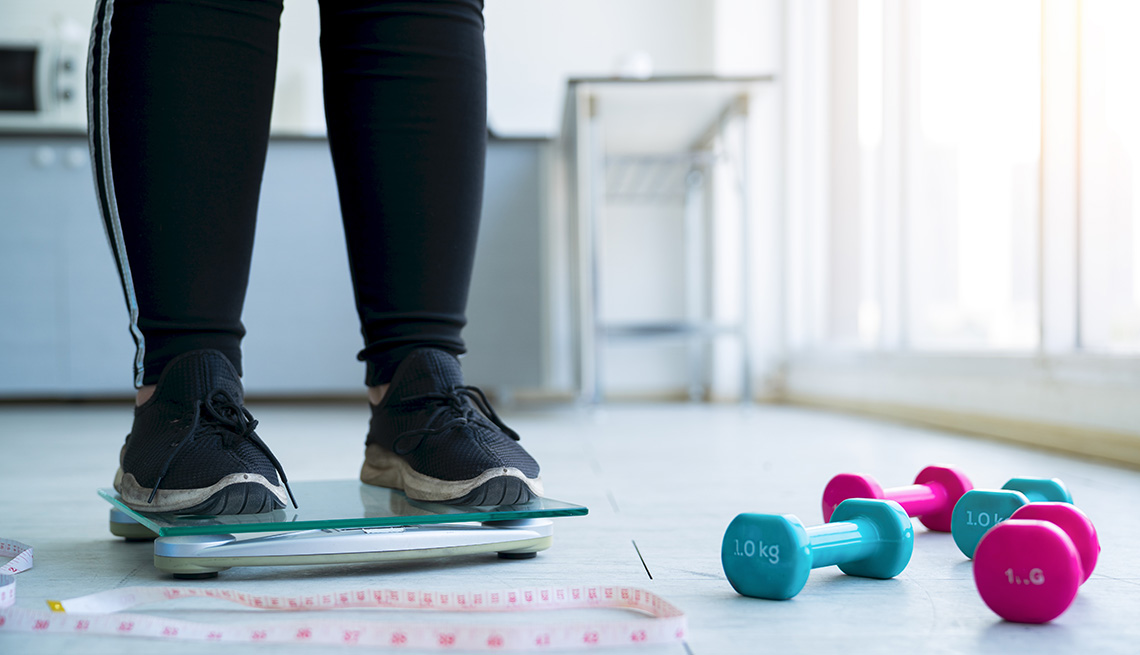Weight gain, drinking, insomnia spiked amid pandemic
- Select a language for the TTS:
- UK English Female
- UK English Male
- US English Female
- US English Male
- Australian Female
- Australian Male
- Language selected: (auto detect) - EN

Play all audios:

None of this is news to Brian Benavidez, 52, of Brooklyn, New York, who says the strain caused by the pandemic affected his sleep. Worries about his family's health, his job, and his
son's schooling and socialization prevented him from falling asleep, and he would wake up during the night. “All those factors combined with unbelievably high levels of stress and it
was difficult to get a good night's sleep,” he says. Courtesy Brian Benavidez In addition, he went from consuming half a beer a week to regular wine, beer and cocktail consumption
several days a week. “It was stress and also boredom,” he says. He managed not to gain weight, though, and instead spent his extra quarantine time exercising and even doing yoga for the
first time in his life. After his struggles with sleep, Benavidez developed strategies to improve his dozing hours, including not watching the news regularly, using a sleep mask and
listening to podcasts to help him nod off. His alcohol consumption has tapered off, but not to pre-pandemic levels. Tullock is also getting back on track, eating better and working with a
trainer to exercise more. She's also been vaccinated, which has helped ease her stress levels. "I feel like we are coming out of it,” she says. “I feel a little bit safer." 5
TIPS FOR GETTING BACK ON TRACK People may have developed bad habits during the pandemic year, says David Buchin, M.D., who specializes in bariatric surgery. Here are some ways to get back on
track: 1. KEEP TO A SCHEDULE. Wake up at a similar time and go to bed at a similar time. If you are working remotely, try to act as if you are in the office for your workday. 2. STOP
SNACKING. Eat breakfast, lunch and dinner but don't visit the refrigerator or pantry in between. 3. GET DRESSED EVERY DAY. Even if you work from home now, don't stay in your
pajamas. 4. INCREASE PHYSICAL ACTIVITY. If the gym is closed, there are plenty of online workout videos and programs — both free and at low cost — to try at home for any fitness level. 5.
TRY SOME FRIENDLY COMPETITION. Bunchin and his coworkers are competing to see who can lose the highest percentage of body fat in three months. _Michelle R. Davis joined AARP as a
writer/editor/producer in 2020 and oversees the Home & Family section of aarp.org. Previously, she was the seniorwriter and social media strategist for _EdWeek Market Brief_ and a senior
correspondent at _Education Week_. She also spent five years as a regional correspondent in Knight Ridder’s Washington bureau, covering Congress and the White House. _ _Peter Urban is a
contributing writer and editor who focuses on health news. Urban spent two decades working as a correspondent in Washington, D.C., for daily newspapers in Connecticut, Massachusetts, Ohio,
California and Arkansas, including a stint as Washington bureau chief for the _Las Vegas Review-Journal_. His freelance work has appeared in _Scientific American, Bloomberg Government_ and
_CTNewsJunkie.com_._